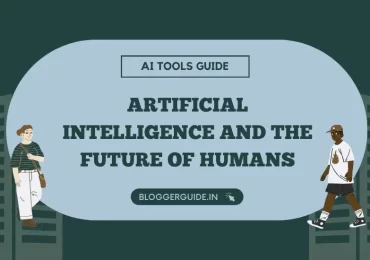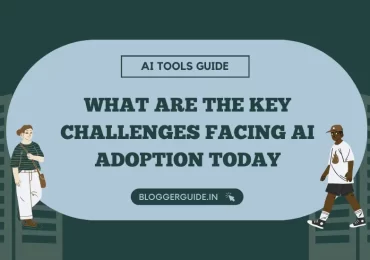Artificial Intelligence (AI) has become a buzzword in today's tech-driven world. From smart homes to self-driving cars, AI promises to make our lives easier and more efficient. But have you ever stopped to think about the potential risks lurking beneath the surface of this technological marvel? As we rush headlong into an AI-powered future, it's crucial to take a step back and consider the hidden dangers that come with this revolutionary technology.
In this post, we'll dive deep into seven AI risks that you simply can't afford to ignore. Whether you're a tech enthusiast or just someone trying to navigate the digital landscape, understanding these potential pitfalls is essential. So, grab a cup of coffee, settle in, and let's explore the darker side of AI together. Trust me, by the end of this read, you'll have a whole new perspective on those "smart" devices surrounding you.
Table of contents
1. Bias and Discrimination
AI systems are only as unbiased as the data they're trained on, and that's where things get tricky. Imagine a hiring algorithm that consistently favors male candidates because it was trained on historical data from a male-dominated industry. Sounds unfair, right? Well, it's happening more often than you'd think.
I once worked on a project where an AI-powered loan approval system was rejecting applications from certain neighborhoods at an alarming rate. After digging deeper, we realized the system had learned to associate specific zip codes with higher risk, effectively discriminating against entire communities. It was a wake-up call that showed me how easily AI can perpetuate and even amplify existing societal biases.
The scary part is that these biases often go unnoticed until it's too late. AI doesn't have a moral compass – it simply follows the patterns in its training data. This means we need to be extra vigilant in auditing AI systems for fairness and continuously updating them to reflect our evolving understanding of equality and justice.
2. Privacy Concerns
Here's a fun exercise: take a moment to think about all the personal information you've shared online today. Now multiply that by every day of your digital life. That's the kind of data AI systems are hungrily gobbling up to learn about you, your habits, and your preferences.
While this data helps AI provide personalized experiences, it also raises serious privacy concerns. Remember that time your phone showed you an ad for something you had only talked about? That's just the tip of the iceberg. AI systems are becoming increasingly adept at piecing together snippets of information to create detailed profiles of individuals.
The real danger lies in how this information could be used. From influencing your purchasing decisions to manipulating your political views, the potential for misuse is enormous. And let's not even get started on the risks of data breaches. It's a classic case of convenience versus privacy, and we're often giving up the latter without even realizing it.
3. Job Displacement
"Will a robot take my job?" It's a question that's keeping more and more people up at night. And while it's easy to imagine AI replacing factory workers or cashiers, the truth is that even highly skilled professions aren't safe from the AI revolution.
I have a friend who works as a radiologist. She recently told me how AI systems are now able to detect certain types of cancer with greater accuracy than human doctors. While this is fantastic news for patients, it's also a stark reminder of how AI is reshaping the job market in unexpected ways.
The key to surviving in an AI-dominated job market is adaptability. We need to focus on developing skills that AI can't easily replicate – things like creativity, emotional intelligence, and complex problem-solving. At the same time, we need to push for policies that support workers through this transition, whether it's through retraining programs or exploring concepts like universal basic income.
4. Security Vulnerabilities
As we become more reliant on AI systems, they become more attractive targets for cyberattacks. And here's the kicker – AI can be fooled in ways that traditional systems can't. Ever heard of adversarial attacks? These are specially crafted inputs designed to trick AI systems into making mistakes.
Imagine an AI-powered security camera that can be fooled by a simple sticker, or a self-driving car that misinterprets a stop sign because of a few carefully placed marks. These aren't just hypothetical scenarios – they're real vulnerabilities that researchers have demonstrated.
The challenge lies in making AI systems more robust without sacrificing their performance. It's a delicate balance, and one that requires constant vigilance and updating. As AI becomes more integrated into critical infrastructure, the stakes of getting this wrong become increasingly high.
5. Lack of Transparency
One of the biggest challenges with advanced AI systems is their "black box" nature. Even the developers who create these systems often can't fully explain how they arrive at their decisions. This lack of transparency becomes a serious issue when AI is making important decisions about our lives.
Think about it – would you be comfortable with an AI system denying you a loan or a job without being able to explain why? This opacity not only makes it difficult to trust AI decisions but also makes it challenging to identify and correct errors or biases in the system.
The push for "explainable AI" is gaining momentum, but it's not an easy problem to solve. In some cases, we might need to sacrifice some performance for the sake of transparency. In others, we might need to develop new tools and techniques for interpreting AI decision-making processes. Either way, as AI becomes more prevalent in our lives, demanding transparency should be a top priority.
6. The Autonomy Anxiety
The development of autonomous AI systems, particularly in the realm of weapons, raises serious ethical and security concerns. The idea of machines making life-or-death decisions without direct human oversight is, frankly, terrifying.
While fully autonomous weapons aren't yet a reality, the technology is rapidly advancing in that direction. The dangers here are manifold – from the potential for unintended escalation of conflicts to the lowering of the threshold for armed engagement. Not to mention the moral implications of delegating decisions about human life to machines.
This is an area where we desperately need international cooperation and regulation. The tech community also has a crucial role to play in setting ethical standards and refusing to work on systems that cross moral lines. The decisions we make now about autonomous AI will shape the future of warfare and, potentially, the fate of humanity.
7. The Human Element
As we increasingly rely on AI to make decisions and perform tasks for us, there's a risk of losing important human skills and critical thinking abilities. It's a subtle danger, but one with far-reaching implications.
I noticed this in my own life when I realized I could no longer remember phone numbers. Why bother when my smartphone can do it for me, right? But what happens when we start outsourcing more complex cognitive tasks to AI? Will we lose our ability to think critically, to be creative, to empathize?
The challenge is to find a balance between leveraging AI's capabilities and maintaining our own skills and agency. This is particularly important in education, where we need to focus on developing the uniquely human skills that AI can't easily replicate. It's about using AI as a tool to enhance our abilities, not as a crutch that atrophies them.
Final Thoughts
As we've explored these hidden dangers of AI, it might be tempting to view the technology with fear or suspicion. But that's not the point. AI has the potential to solve some of humanity's most pressing problems and to enhance our lives in countless ways. The key is to approach its development and deployment with our eyes wide open to the risks.
We need to foster a culture of responsible AI development, one that prioritizes ethics, transparency, and human values alongside technological progress. This requires collaboration between technologists, policymakers, ethicists, and the public at large. By addressing these hidden dangers head-on, we can work towards harnessing the power of AI while safeguarding our rights, our privacy, and our humanity. The future of AI is in our hands let's make sure it's a future we want to live in.









